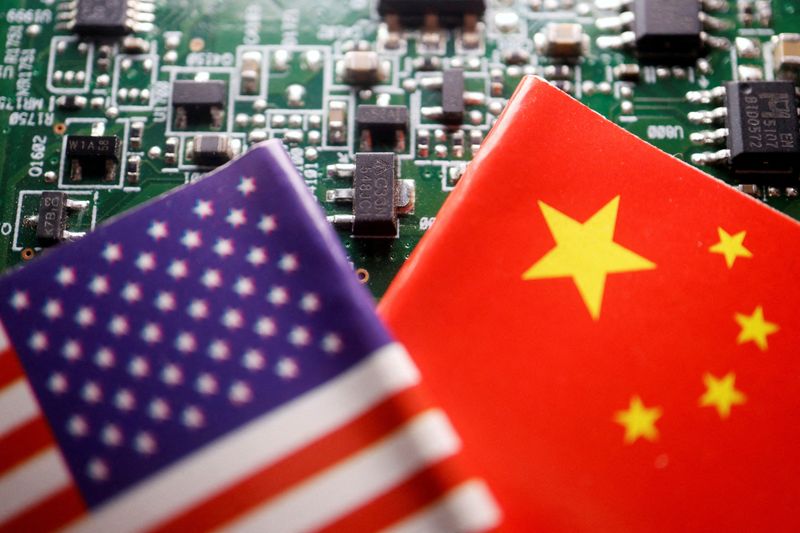The Biden administration is poised to announce new export restrictions targeting China, anticipated to be disclosed as early as next week. According to a communication from the U.S. Chamber of Commerce, these regulations could potentially include up to 200 Chinese chip companies on a trade restriction list which would prevent most U.S. suppliers from delivering goods to these firms. The Commerce Department, responsible for overseeing U.S. export policy, is expected to publish these new regulations before the Thanksgiving break, marking a firm continuation of the administration’s efforts to limit China’s access to critical semiconductor technology.
These upcoming restrictions follow a series of past export controls implemented by President Biden that aim to hinder China’s technological advancements in semiconductor production. There are significant concerns within the U.S. government regarding the potential military applications of the technology, necessitating a robust approach to curtailing Chinese capabilities in this field. Over the last few years, U.S. policymakers have increasingly focused on establishing a tech decoupling strategy as a means of safeguarding national security while simultaneously preserving American technological leadership.
In addition to the imminent announcement, the administration is also expected to release another set of regulations next month. These additional rules are likely to target high-bandwidth memory chips, integrating them into a broader artificial intelligence regulatory package. This upcoming initiative reflects a growing recognition of the importance of semiconductor technology in various sectors, including military, national security, and cutting-edge research, and signifies the administration’s intent to bolster its regulatory framework in these areas.
The impending export control measures illustrate the Biden administration’s commitment to reinforcing existing trade barriers with China, a sentiment echoed in various strategic discussions within U.S. defense and economic circles. Even with the prospect of a Republican-led government in early January 2025, the administration appears determined to push forward with these efforts. The new measures are consistent with a broader narrative of protecting American technological interests, which have been increasingly threatened by foreign competition, particularly from China.
Industry sources have indicated that the initial round of regulations will likely encompass restrictions on chipmaking tools being shipped to China. Such measures are critical in constraining the ability of Chinese firms to manufacture advanced semiconductors, thereby limiting their potential to advance technologically and militarily. This comprehensive strategy underscores the U.S.’s intention to maintain a competitive edge in the global tech arena while addressing its concerns over China’s rapid capabilities in high-tech industries.
As these discussions continue, the U.S. Chamber of Commerce’s silence on the emerging regulations highlights the complicated balance between national security interests and the business community’s concerns regarding trade relations with China. The dual approach of fostering domestic technological leadership while imposing stringent export controls signifies a critical juncture in U.S.-China relations, with implications that will impact both economic ties and geopolitical dynamics in the months to come.

